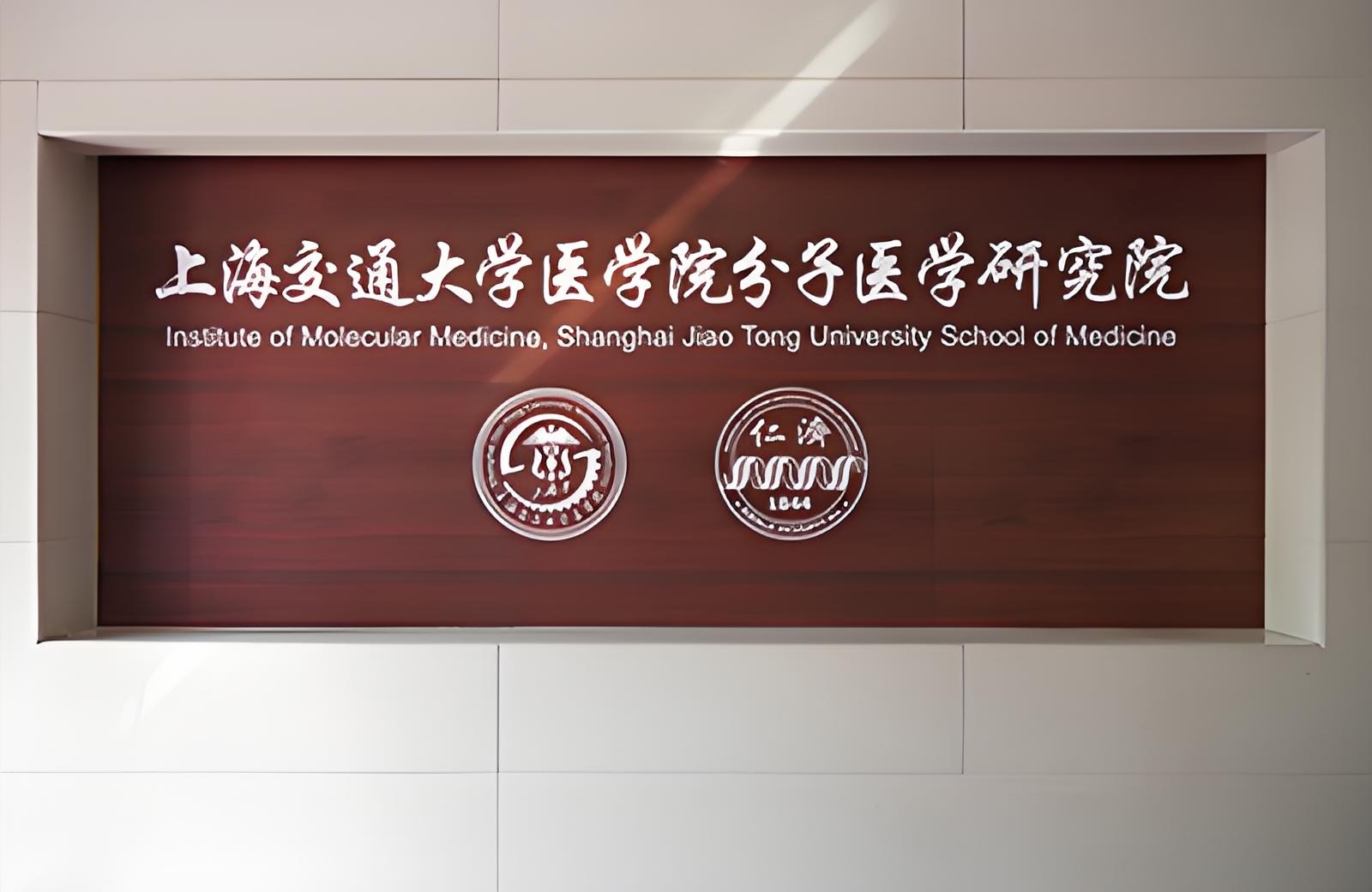Institute of Molecular Medicine, Shanghai Jiao Tong University School of Medicine
2024-06-26
The team's academic cooperation achievements and documents with the Institute of Molecular Medicine, School of Medicine, Shanghai Jiao Tong University:
1. A Framework Nucleic Acid Based Robotic Nanobee for Active Targeting Therapy.pdf
2. An Intelligent DNA Nanorobot with in Vitro Enhanced Protein Lysosomal Degradation of HER2.pdf
3. Blood exposure to graphene oxide may cause anaphylactic death in non-human primates.pdf
The Institute of Molecular Medicine of Shanghai Jiao Tong University was established by the School of Medicine of Shanghai Jiao Tong University with the support of the affiliated Renji Hospital. The dean is Professor Tan Weihong, an academician of the Chinese Academy of Sciences and the Academy of Sciences for the Developing World.
The Institute of Molecular Medicine of Shanghai Jiao Tong University is committed to pioneering and leading emerging disciplines and academic directions such as molecular medicine, exploring new ways from academic research to the formation of intellectual property and industrial production, promoting interdisciplinary basic research in molecular medicine science and translational medicine research, and improving the level of basic and clinical research in related fields at Shanghai Jiao Tong University.
The Institute of Molecular Medicine of Shanghai Jiao Tong University School of Medicine, led by Professor Tan Weihong, an academician of the Chinese Academy of Sciences and the Academy of Sciences for the Developing World, was officially established on January 6, 2018. The institute is based on the Renji Hospital affiliated to Shanghai Jiao Tong University School of Medicine. The establishment of the Institute of Molecular Medicine is mainly based on the following concepts: biomedical research and development must be carried out in medical schools and clinical hospitals, with relatively abundant resources provided by clinical hospitals, close cooperation with clinical doctors, and patients as the main research target.
In order to effectively prevent and treat major diseases that endanger human health, improve the level of innovative drug development, strengthen early diagnosis and diagnosis capabilities, and promote the development of precision medical technologies in the sustainable development of my country's economy and society, the Institute of Molecular Medicine will start from molecular science and use new technologies of nucleic acid aptamer molecular engineering to develop new reagents for the diagnosis and treatment of major diseases and personalized new drugs, develop related core patented technologies, and promote their clinical medical applications. The establishment of the Institute of Molecular Medicine will bring about revolutionary new basic sciences and new technologies in molecular medicine that can change the landscape of the biomedical field, help establish Shanghai Jiao Tong University's leading position in new medical technologies in the 21st century, and promote the development of the entire discipline of molecular medicine.
The Institute of Molecular Medicine, led by Professor Tan Weihong, has been established since October 2017. It has formed a multidisciplinary cross-disciplinary team with the emerging discipline of nucleic acid aptamer molecular medicine as the core. The research team mainly consists of Professor Tan Weihong, an academician of the Chinese Academy of Sciences and the Academy of Sciences for the Developing World, Professor Yang Chaoyong, a national outstanding youth, and researchers Zuo Xiaolei and Li Juan, national outstanding youths. There are more than 50 researchers at all levels. The main research directions include: nucleic acid aptamer screening and nucleic acid targeted drugs, super nucleic acid molecules and super nucleic acid drugs, microfluidic chips, biosensor detection, single cell analysis, etc. In the future research process, the Institute of Molecular Medicine will carry out in-depth cooperation with relevant departments of the hospital on scientific issues such as the discovery of major disease markers, molecular drugs, molecular imaging probes, early diagnosis of molecular pathology, the pathogenesis of major diseases, new POCT detectors and wearable detection equipment, personalized diagnosis and treatment of single-cell sequencing, treatment of bacterial resistance, and the impact of intestinal flora on health.
Professor Tan Weihong is one of the leading figures in the field of international aptamer and applied nucleic acid technology research, and the chief scientist of the National 973 Program. He has been engaged in applied nucleic acid research for more than 20 years with outstanding achievements. He has published more than 580 SCI papers such as Science, with an SCI H index of 105. He is the scientist with the most published and cited papers in the field of aptamers in the world. He has won the Pittsburgh Analytical Chemistry Award, the Florida Outstanding Contribution Award of the American Chemical Society, and the Second Prize of the National Natural Science Award.



